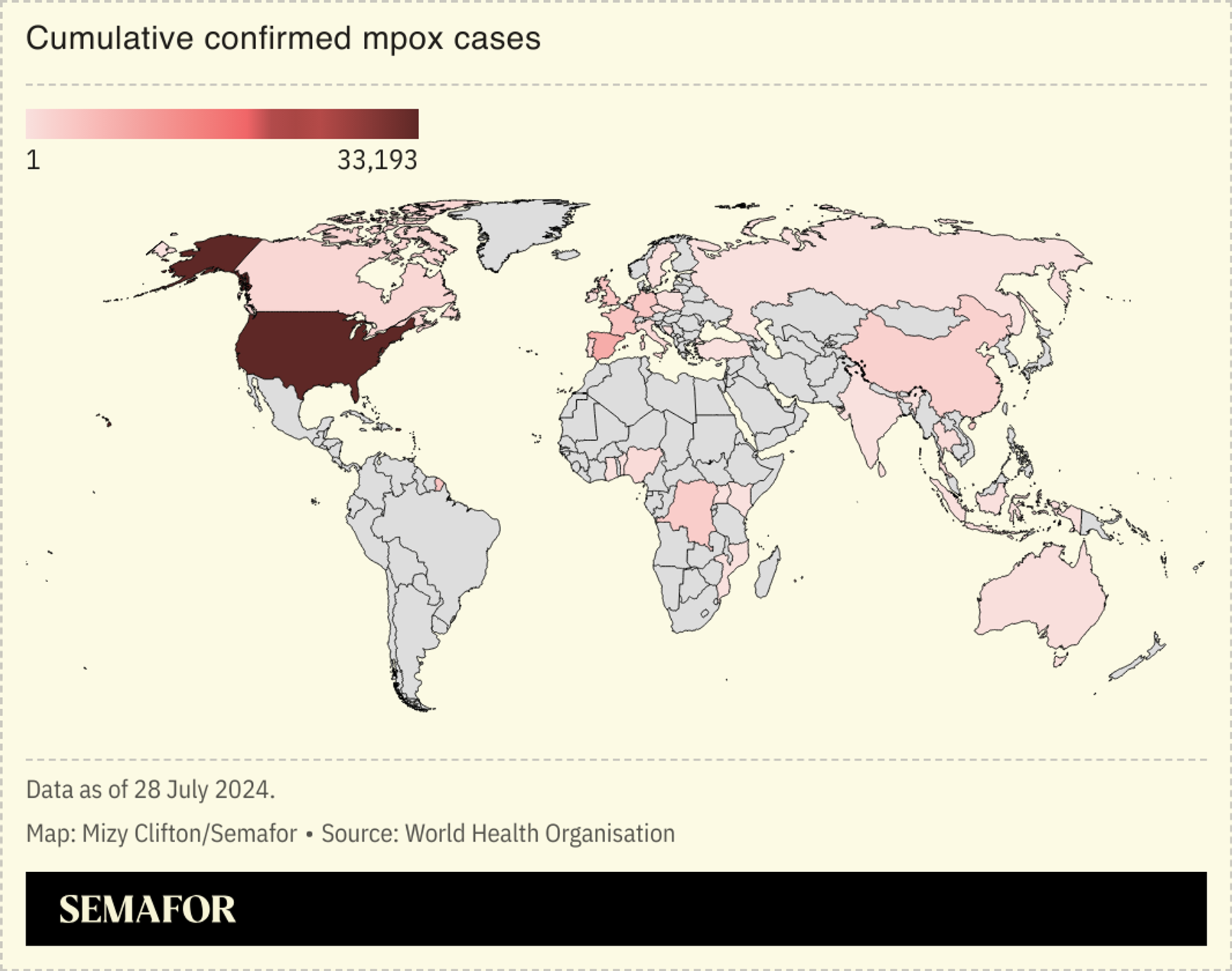The News
The World Health Organization called an emergency meeting to discuss the mpox outbreak in the Democratic Republic of Congo, as the virus appears to have spread to neighboring countries. The WHO is weighing whether it could pose a global threat.
The DRC has reported nearly 27,000 cases of mpox and around 1,200 mpox-related deaths since the beginning of 2023. Around 50 confirmed and more suspected cases have been reported in Burundi, Kenya, Rwanda, and Uganda in the past month, the WHO said.
The African Centres for Disease Control and Prevention said Thursday it was “likely” to declare an mpox public health emergency as soon as next week.

SIGNALS
Infections are spreading more easily in DRC
Renewed fighting in the DRC has compounded the difficulty of containing the spread of mpox, as displaced people overcrowd what few shelters there are, the UN said. And while recent infrastructure improvements, like newly paved roads, have given some people more access to healthcare, the ease of movement is also helping the virus spread more rapidly, Bloomberg noted: “Diseases follow people and people are traveling faster and further than they did in the past… In the 1980s you were not seeing motorbikes, or very few, in deeper Congo. Now people mostly travel on them,” an infectious disease expert at Doctors Without Borders said.
Sex workers are particularly at risk
Transmission can occur simply through direct contact with mpox viral lesions, and many of the new infections appear to be spread through sexual contact. That represents a “new challenge” for controlling the virus, a medical expert told Al Jazeeera. Sex workers are particularly at risk: They accounted for some 29% of confirmed cases of the virus circulating in the DRC between late 2023 and early 2024, according to research published in Nature. The WHO’s advice that people at risk should reduce their number of sexual partners “is probably not feasible” for many sex workers due to their financial constraints, scientists wrote in medical journal The Lancet. Other interventions to give these workers more financial support, for example, may be more effective.
‘Vaccine nationalism’ leaves Africa ill-prepared to manage outbreak
Africa has so far struggled to secure enough mpox vaccines, a repeat of the “vaccine nationalism” witnessed during the COVID-19 pandemic, Vox noted, whereby some countries stockpiled vaccines at the expense of others, particularly African nations. The problem is partly structural: Because the continent produces only 1% of the vaccines it needs, Africa “has to rely largely on donations, which are at the whims of donors,” a vaccine expert told the outlet. The WHO doesn’t recognize the DRC’s medicines regulator as “stringent” enough, making it more reluctant to provide support, while Africa’s Center for Disease Control post-COVID framework to improve vaccine access has been “sluggish” to get off the ground.


